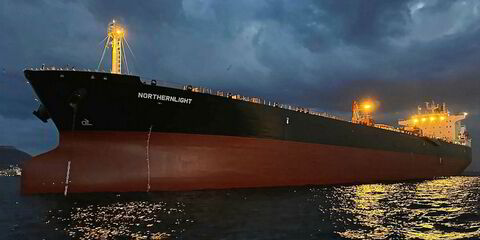The Western Bulk chief executive believes nobody can offer an accurate picture of the forward supply picture facing the market.
“There is an enormous uncertainty on the orderbook because you don’t know to what extent there are delays, you don’t know to what extent there are conversions yet and you don’t know to what extent there are cancellations,” he said in an interview today.
“I think there is a lot of ghost ships in the orderbook,” he explained after Western Bulk reported its second quarter figures.
“I think in dry cargo it’s primarily China and I think that is where you find most of the ghosts."
He says the capesize orderbook is easiest to judge, but the ghost ships are present across the asset classes.
“The smaller the ships are the more diversified the yards are and the less easy it is to have a complete overview of what is the reality,” he said.
Quarter good in reality
Western Bulk recorded an adjusted loss of $7.4m in the three months to the end of June, with EBITDA flat at negative $4.5m despite its ships outperforming the market.
“Considering those realties, the quarter as such was good. The margin on the arbitrage business was at a historically high level compared to the market level,” Ismar said.
He added: “The market was generally flat and boring and there are too many ships out three."
Better second half
Ismar explained: “When we went into this year we expected it to be a bad market and the first half has been as bad as we expected.”
He says the second half of the year is likely to be slightly better with additional volatility but the overall picture will remain poor.
“The present spike is not necessarily something that is going to last,” Ismar said. “It is going to come off a bit again and then you may have another spike in the rest of the year.
“Cape went from $4,000 per day to $20,000 per day and the supramax market has gone from $7,500 to $9,500. A $2,000 improvement is not anything to go crazy about. It’s still a weak market.”



